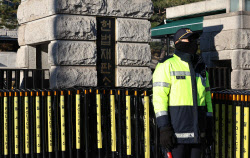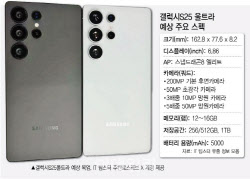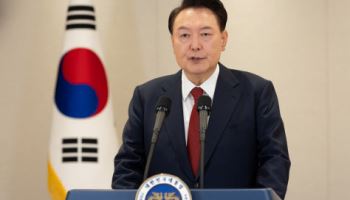2024년 12월 23일 월요일
[edaily] 다음은 국가신용평가기관인 S&P가 한국의 국가 신용등급을 상향 조정하면서 내놓은 보도자료 원문입니다.
SINGAPORE (Standard & Poor"s) Nov. 13, 2001--Standard & Poor"s today raised its long-term ratings on the Republic of Korea by one notch. The long-term foreign currency issuer credit and senior unsecured debt ratings were raised to triple-"B"-plus from triple-"B", and the local currency issuer credit and senior unsecured debt ratings to single-"A"-plus from single-"A".
The outlook is stable. At the same time, Standard & Poor"s raised its short-term foreign currency issuer credit rating on Korea to "A-2" from "A-3", and affirmed its "A-1" short-term local currency issuer credit and short-term debt ratings on Korea.
The upgrade was driven predominantly by continued progress in structural
reform. Recent reforms include the Corporate Restructuring Promotion Act that will accelerate the rehabilitation of the ailing large conglomerates (chaebol), and the ongoing disposal of assets acquired by the state during the Asian crisis.
These disposals include Korean won (W) 3.8 trillion (US$3 billion) securitized by collateral debt obligations of the Korea Asset Management Co. (KAMCO), the further partial sale of the government"s remaining stake in Korea Tobacco and Ginseng Co., and the expected sales of Daewoo Motors and Hyundai Investment Trust & Securities.
These reforms have taken place at a time when Korea has been able to restore is strong financial position, as demonstrated by: - An external position resilient to most foreseeable potential shocks. Central bank foreign exchange reserves, at more than US$100 billion and rising, are
almost 1.5 times as much as Korea"s gross external financing gap.
A more flexible exchange rate policy since 1998 should preclude future liquidity crises. Korea"s external net position has improved and is now projected at net assets of 7.5% of exports for the end of 2001 from net debt of 81.0% at the end of 1997. The public sector has been a net external creditor since the end of 1999.
- A diverse economy, with a flexible labor force. Korea"s estimated 2001 per capita GDP of US$9,500 is well above the US$3,700 median of sovereigns rated "BBB". The country"s labor force also proved adaptable during the financial crisis by taking nominal wage cuts with minimal labor strife, and by lowering its participation rate. A broad-based export sector helped generate real GDP growth of 8.8% in 2000 and will probably allow Korea to avoid a recession during the current global downturn.
- A good level of fiscal flexibility. Unlike similarly rated peers, Korea"s fiscal balances have held up well since the Asian crisis, with the general government deficits (including social security and excluding the principal amount of bank assistance) falling quickly to 0.5% in 2000 from 5.3% in 1998.
Even with two supplementary budgets in 2001, the general government deficit should still be less than 1% of GDP. Gross general government debt, including bank-bailout vehicles, at 52% of 2001 GDP, coupled with general government and central bank liquid assets of 39% of GDP, provide the government with ample room to address further problems in the financial sector, if needed.
Korea"s ratings are still constrained by:
- Incomplete private sector restructuring. Although the government has
strengthened minority shareholder and creditor rights, improved accounting standards, and opened the economy to foreign investment, there is much left to do. The government remains owner of most of the banking sector. The long-term viability of Hynix (SD/--/--), a major semiconductor manufacturer whose exports account for 5% of the nation"s total, remains uncertain. The financial sector, which has already required W148 trillion of upfront assistance, is likely to require an additional W32 trillion, taking the upfront cost since the Asian
crisis to 38% of 1997 GDP.
- Contingent costs of peninsular integration. Given the disparity in income levels and development, a reunification between the Republic of Korea and the Democratic People"s Republic of Korea (DPRK) could cost South Korea and donor nations several times South Korea"s annual GDP. Although President Kim Dae-jung"s "Sunshine Policy" has helped forestall an outright DPRK economic collapse, which would have forced the issue, the North remains autarkic, unpredictable, and a military threat.
OUTLOOK: STABLE
The outlook assumes that further progress on structural reform, aside from completing pending government asset sales, will stall during the run-up to the December 2002 presidential election. With President Kim having resigned from the head of the Millennium Democratic Party (MDP) to focus his attention on economic management, Standard & Poor"s does not expect the government to repeat the policy mistakes of 1997 before the last election, which pushed Korea into its deepest recession since its civil war. These mistakes included ill-advised assistance and nationalization of key parts of its banking and corporate sector, and the depletion of usable central bank reserves by placing them with
financially weaker Korean financial institutions abroad.
Although the global environment is much weaker today than five years ago, Korea"s macroeconomic strengths and the agility of its labor force should allow it to manage the downturn without major difficulty.
주요뉴스
저작권자 © 이데일리 - 무단전재, 재배포 금지
많이 본 뉴스
- 1 위상 높아진 우원식…'외톨이 의장'에서 '유력 정치인'으로
- 2 끊어진 전깃줄에 목 감긴 오토바이 운전자…“일주일 간 기억 없어”
- 3 "남은 배터리 16%"…영하 10도 속 갇힌 등산객 구조[따전소]
- 4 "몽유병 있어요"…나체로 호텔 다닌 40대 공무원의 황당 변명
- 5 이재명 “이분 꼭 찾아달라”…맨몸으로 군용차 막은 시민
- 6 할머니에 욕정 품은 그놈…교회로 향한 이유는 [그해 오늘]
- 7 길 뚫은 ‘트랙터 시위’…농민 단체, 곧장 용산 尹 관저행
- 8 마은혁 헌법재판관 후보자 "계엄선포는 사법심사 대상"
- 9 “하루 1000명 성관계 신기록 도전” 뒷이야기...1명당 41초
- 10 ‘UFC 진출’ 유주상, “900원짜리 음료 못 사 먹던 시절 생각나” [인터뷰]
오늘의 주요 기사








![[포토]스케이트 타는 시민들로 북적](https://image.edaily.co.kr/images/Photo/files/NP/S/2024/12/PS24122200317t.jpg)
![[포토]기름값 10주째 올라…전국 휘발유 평균 1652.2원](https://image.edaily.co.kr/images/Photo/files/NP/S/2024/12/PS24122200258t.jpg)
![[포토]크리스마스 분위기](https://image.edaily.co.kr/images/Photo/files/NP/S/2024/12/PS24122200248t.jpg)
![[포토]'서울광장 스케이트장 좋아요'](https://image.edaily.co.kr/images/Photo/files/NP/S/2024/12/PS24122000768t.jpg)
![[포토] 나인퍼레이드 캠페인](https://image.edaily.co.kr/images/Photo/files/NP/S/2024/12/PS24122000496t.jpg)
![[포토]더불어민주당 최고위원회의 개최](https://image.edaily.co.kr/images/Photo/files/NP/S/2024/12/PS24122000232t.jpg)

![[포토]영화 속 배경에서 찰칵](https://image.edaily.co.kr/images/Photo/files/NP/S/2024/12/PS24121901369t.jpg)
![[포토] 아수라장된 기자회견장](https://image.edaily.co.kr/images/Photo/files/NP/S/2024/12/PS24121901115t.jpg)
![[포토]다양한 식음료가 한 자리에, '컬리 푸드페스타 2024'](https://image.edaily.co.kr/images/Photo/files/NP/S/2024/12/PS24121900958t.jpg)

![[포토]안소현-김성태 본부장,취약계증 후원금 전달식 진행](https://spnimage.edaily.co.kr/images/vision/files/NP/S/2024/12/PS24121400036h.jpg)


